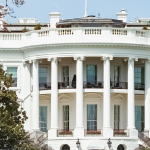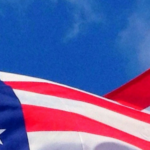US Treasury | Coronavirus State and Local Fiscal Recovery Funds to Deliver $350 Billion
From the US Treasury on May 10, 2021
Aid to state, local, territorial, and Tribal governments will help bring back jobs, address pandemic’s economic fallout, and lay the foundation for a strong, equitable recovery
WASHINGTON — Today, the U.S. Department of the Treasury announced the launch of the Coronavirus State and Local Fiscal Recovery Funds, established by the American Rescue Plan Act of 2021, to provide $350 billion in emergency funding for state, local, territorial, and Tribal governments. Treasury also released details on the ways funds can be used to respond to acute pandemic-response needs, fill revenue shortfalls among state and local governments, and support the communities and populations hardest-hit by the COVID-19 crisis. Eligible state, territorial, metropolitan city, county, and Tribal governments will be able to access funding directly from the Treasury Department in the coming days to assist communities as they recover from the pandemic.
“Today is a milestone in our country’s recovery from the pandemic and its adjacent economic crisis. With this funding, communities hit hard by COVID-19 will able to return to a semblance of normalcy; they’ll be able to rehire teachers, firefighters and other essential workers – and to help small businesses reopen safely,” said Secretary Janet L. Yellen. “There are no benefits to enduring two historic economic crises in a 13-year span, except for one: We can improve our policymaking. During the Great Recession, when cities and states were facing similar revenue shortfalls, the federal government didn’t provide enough aid to close the gap. That was an error. Insufficient relief meant that cities had to slash spending, and that austerity undermined the broader recovery. With today’s announcement, we are charting a very different – and much faster – course back to prosperity.”
While the need for services provided by state, local, territorial, and Tribal governments has increased —including setting up emergency medical facilities, standing up vaccination sites, and supporting struggling small businesses—these governments have faced significant revenue shortfalls as a result of the economic fallout from the crisis. As a result, these governments have endured unprecedented strains, forcing many to make untenable choices between laying off educators, firefighters, and other frontline workers or failing to provide services that communities rely on. Since the beginning of this crisis, state and local governments have cut over 1 million jobs.
The Coronavirus State and Local Fiscal Recovery Funds provide substantial flexibility for each jurisdiction to meet local needs—including support for households, small businesses, impacted industries, essential workers, and the communities hardest-hit by the crisis. Within the categories of eligible uses listed, recipients have broad flexibility to decide how best to use this funding to meet the needs of their communities. In addition to allowing for flexible spending up to the level of their revenue loss, recipients can use funds to:
- Support public health expenditures, by – among other uses – funding COVID-19 mitigation efforts, medical expenses, behavioral healthcare, mental health and substance misuse treatment and certain public health and safety personnel responding to the crisis;
- Address negative economic impacts caused by the public health emergency, including by rehiring public sector workers, providing aid to households facing food, housing or other financial insecurity, offering small business assistance, and extending support for industries hardest hit by the crisis
- Aid the communities and populations hardest hit by the crisis, supporting an equitable recovery by addressing not only the immediate harms of the pandemic, but its exacerbation of longstanding public health, economic and educational disparities
- Provide premium pay for essential workers, offering additional support to those who have borne and will bear the greatest health risks because of their service during the pandemic; and,
- Invest in water, sewer, and broadband infrastructure, improving access to clean drinking water, supporting vital wastewater and stormwater infrastructure, and expanding access to broadband internet.
Insufficient federal aid and state and local austerity under similar fiscal pressures during the Great Recession and its aftermath undermined and slowed the nation’s broader recovery. The steps the Biden Administration has taken to aid state, local, territorial, and Tribal governments will create jobs and help fuel a strong recovery. And support for communities hardest-hit by this crisis can help undo racial inequities and other disparities that have held too many places back for too long.
For an overview of the Coronavirus State and Local Fiscal Recovery Funds program including an expanded use of eligible uses, see the fact sheet released today. Find additional details on the state, local, territorial, and Tribal government allocations on the Coronavirus State and Local Fiscal Recovery Funds Webpage.














